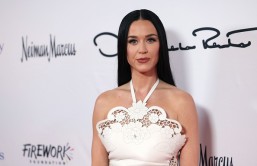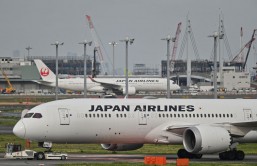Baseball is a business. So are the rest of the major sports leagues. So when a team is losing at an alarming rate, business is affected, and it also affects how other teams will plan for the future. That is why 'tanking' is a now a paramount topic in the MLB.
For example, from 2011-2013, the Houston Astros lost at least 106 games per season under new general manager Jeff Luhnow and owned the No. 1 overall pick in the 2012, 2013 and 2014 MLB Drafts. They were also awarded with the highest bonus pools, meaning they had the most money of any team to spend in each of those drafts.
The Philadelphia Phillies are another club going down that road. After five consecutive NL East titles from 2007-2011, the Phillies fell off the map abruptly. They went 81-81 in 2012 and finished third in the division, but they've since finished fourth in 2013 and fifth in both 2014 and 2015 (they had the worst record in the MLB this past season). The club traded away most of its contributing veteran players to get value and better prepare for the future (they now have the No. 1 overall pick in the 2016 draft).
Perhaps the Atlanta Braves are an even better example as they've purged their entire roster over the past two seasons in an effort to get back on track for the 2017 season, which is when they'll move into their new stadium.
The Milwaukee Brewers are also heading in that direction. They've traded Carlos Gomez, Adam Lind, Jean Segura, Francisco Rodriguez, Gerardo Parra, Jonathan Broxton, Aramis Ramirez, Neal Cotts and others since the non-waiver deadline and hired GM David Stearns to rebuild the organization.
If the MLB and team owners are really concerned about 'tanking' affecting baseball, here are three measures the MLB and MLBPA can work toward negotiating when the collective bargaining agreement talks begin in the near future (the current CBA expires in December of 2016).
Create a draft lottery
The NBA does this and the team with the worst record has only received the No. 1 overall pick twice in the past 12 years, so the system clearly doesn't pander to the intentional tankers (at least the ones that are most successful). The MLB could also grant the winner of the lottery with the largest bonus pool. In this scenario, if teams want to tank, they'll be taking a risk.
The only difference here is that NBA players taken atop the draft are much more of a lock (and probably much more valuable) than baseball players taken in the same spot. Take a look at the past eight No. 1 overall NBA and MLB selections.
|
Year |
NBA No. 1 Overall Pick |
MLB No. 1 Overall Pick |
|
2008 |
Derrick Rose (Bulls) |
Tim Beckham (Rays) |
|
2009 |
Blake Griffin (Clippers) |
Stephen Strasburg (Nationals) |
|
2010 |
John Wall (Wizards) |
Bryce Harper (Nationals) |
|
2011 |
Kyrie Irving (Clippers to Cavaliers) |
Gerrit Cole (Pirates) |
|
2012 |
Anthony Davis (Hornets) |
Carlos Correa (Astros) |
|
2013 |
Anthony Bennett (Cavaliers) |
Mark Appel (Astros) |
|
2014 |
Andrew Wiggins (Cavaliers) |
Brady Aiken (Astros) |
|
2015 |
Karl -Anthony Towns (Timberwolves) |
Dansby Swanson (Diamondbacks) |
The only real comparison is Harper vs. Wall. Even though Bennett is considered a bust, Appel also has not lived up to expectations with the Astros and was traded to the Phillies this offseason. Beckham has played 87 career MLB games and is already 26 years old.
Professional basketball players also provide a much faster return on investment, so one could argue the value of Wall to the Wizards (to date) is greater than Harper's to the Nationals.
This is one solution for the MLB, but I don't see it being awfully fair due to the vast differences of the circumstances between the MLB and NBA. Basketball players jump right into NBA action as opposed to baseball players, who start their careers off in the minor leagues and usually don't make their MLB debuts until at least two years down the road.
Look at the Astros. They had three No. 1 overall picks and only one of them is still with the team (Appel was traded and the team couldn't reach a deal with Aiken before the signing deadline).
However, this next idea could help a bit more.
Reduce the gap in draft dollars given to each MLB team
As ESPN's Buster Olney noted in his column yesterday, the MLB-worst Diamondbacks were given $8.62 million to spend in the 2015 draft, followed by the Astros ($7.4 million), who had the second overall pick, and the Rockies ($6.22 million), who had the third overall pick. The D-Backs (who led the NL in runs scored this past season) were just two games worse than the Rockies in 2014, yet they got $1.4 million more to spend, which doesn't really make much sense.
Draft money is important because teams must allocate their dollars and carefully plan on what players they are going to spend on. Just because a team performs poorly one year doesn't mean they deserve the most money to spend the following year, and vice versa.
Take a look at the 2014 Baltimore Orioles. The club finished with the second-best record in the MLB and was awarded with a paltry $2.06 million for the 2015 draft. Prior to the 2015 season, Baseball America ranked the Orioles' farm system 29th in the MLB compared to Arizona (sixth), Houston (14th) and Colorado (eighth). None of these four teams are big market clubs, so they aren't exactly big spenders in free agency, which means the O's were significantly hampered both in the draft and in free agency that offseason.
Again, MLB drafts do not provide an immediate return on investment. Draft picks are typically long-term investments, so one good season or one bad season should not significantly dictate how a team will be able to draft the following season.
Here's another example. The Red Sox' farm system ranked second in the league heading into the 2015 season. Their MLB roster severely underachieved despite being stacked with perhaps some of the most talented players baseball. Boston finished last in the AL East in 2015 and will now have the 12th overall pick and probably just over $3 million to spend in the 2016 draft, which won't be much less than what the Padres, Tigers, White Sox and Mariners will be able to spend - all of whom have far worse farm systems (and some far worse MLB rosters).
Force teams to promote top prospects earlier if they're excelling beyond a certain percentile
This one might cause a stir, but I don't really care. It's hypothetical.
Remember when the Cubs waited those extra 12 days to promote phenom Kris Bryant this past season so they could delay his free agency by one more year? Well Bryant and his agent, Scott Boras, filed a grievance against the Cubs claiming the team manipulated his service-time (which they did, but will never admit).
Here's what Boras said regarding the matter earlier in the offseason:
"This is a union matter," told Patrick Mooney of CSN Chicago. "There's an ambiguity. It needs to be resolved so that the sides know more about how to handle that situation.
"Kris Bryant is the performer. It's that when his talent is so great, the rarity of the ambiguity had risen. That's all."
"This is about rule interpretation, the intent. That's something the drafters of the CBA and an arbitrator will have to define. The union's handling it."
*NOTE: Bryant being promoted at the beginning of April 2015 wouldn't have made a difference for Chicago, but the 2014 Cubs could have perhaps used him to improve their 73-89 campaign, which got them the ninth overall pick in 2015 (Ian Happ).
How fitting! Because now the new CBA may focus on this issue, which can be parlayed into helping fix the tanking issue.
Boras is right - this is an ambiguous topic and it's not going to be easy to determine when a team should be required to promote a top prospect such as Bryant. But I'm sure the league can come up with some statistical guideline that says a player must make a certain number of plate appearances or pitch a certain number of innings while maintaining reputable numbers (which will be dictated by the MLB) in order to earn a promotion to the bigs.
Bryant's issue is an outlier. He batted an unprecedented .425/.477/.1.175 with 14 runs scored, 9 home runs and 15 RBI in 14 spring training games and led the minors in home runs the season prior (with 43 total, including 21 at Triple-A Iowa).
But still, being forced to promote and play a talented prospect could be the difference in a few wins, which could then be a difference in a few draft spots.
-----
All in all, honestly, I don't see what the big deal is about MLB club rebuilding. These teams are being earnest in their efforts to get better, and it's not an overnight task to build a baseball team back into contention. It's not like any of these clubs mirror what the Philadelphia 76ers are doing, because nobody really knows what their plan has been over the past four years. At least the Astros plan panned out and they were a playoff team this past season.
Additionally, one single player rarely propels a baseball team into contention. Look at the Los Angeles Angels. They have the best player in the MLB in Mike Trout, yet they've made the playoffs just once since his 2012 rookie season (he finished second in the MVP voting that year) and have yet to make it past the ALDS since he's been with the team.
I'm not sure how the MLB can fully and fairly address this 'tanking' issue, but I think those three previous suggestions are a good start to at least consider for those who are overly concerned about it.








